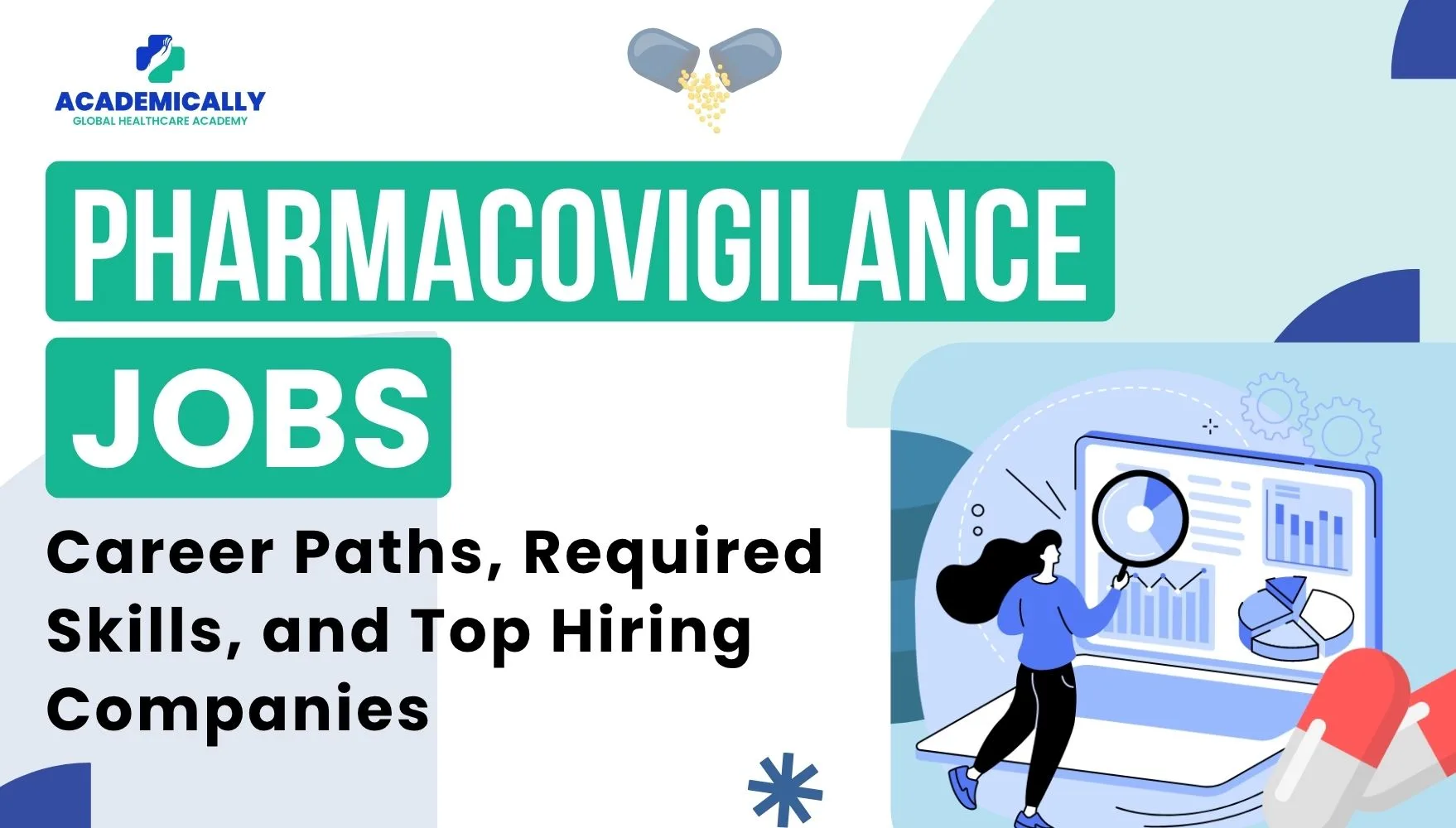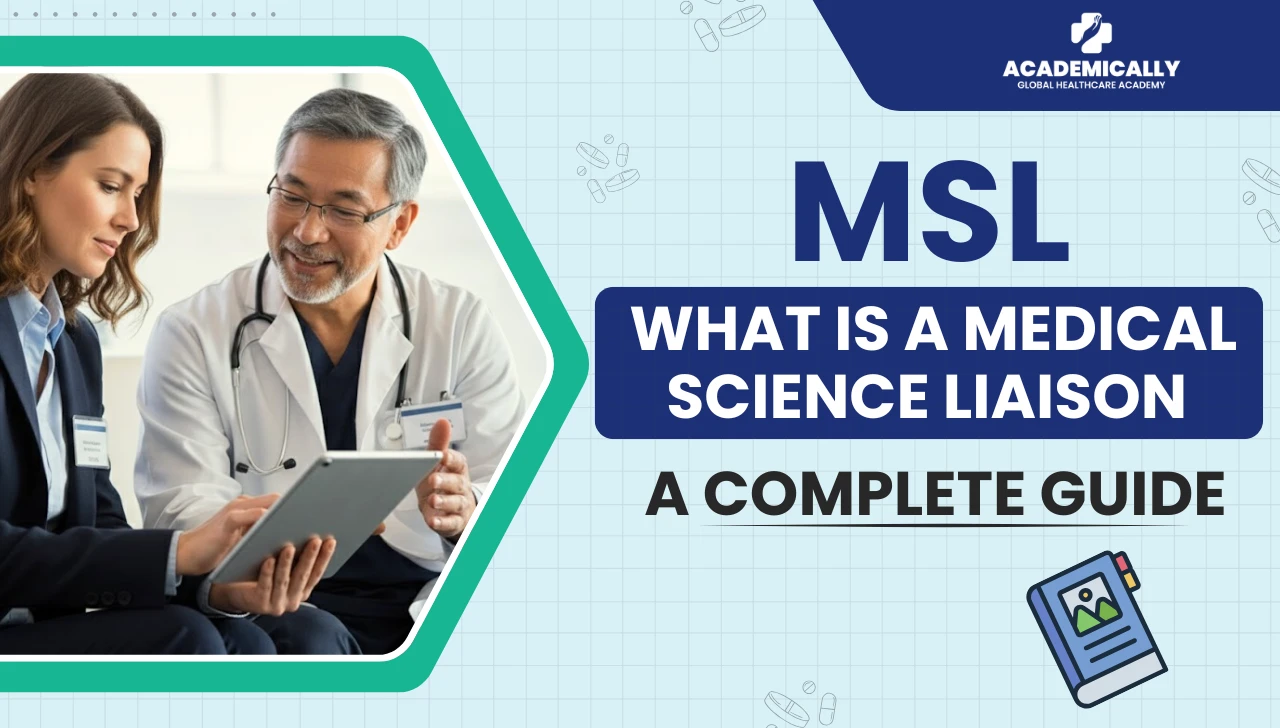Pharmacovigilance has become a widely known part of the drug safety mission. It has always been an integral part of the process. However, it has picked up recognition in the last few years. Pharmacovigilance is the junction where science meets safety. It’s one of the most important parts of the pharmaceutical industry. It ensures that every medicine, once released to the public, stays safe for patients worldwide.
You might wonder: aren't the medicines already safe when they enter the market? And the answer is yes, they are. However, they have been tested only on a limited number of people. What happens when thousands and millions of people take them? That is where PV comes into play.
If you’ve ever wondered what pharmacovigilance professionals do, what skills are in demand, and where to find the best job opportunities, this guide breaks it down for you. Let’s dive in.
What Exactly Is Pharmacovigilance?
Pharmacovigilance is the science and practice of
- Detecting
- Assessing
- Understanding
- Preventing
Adverse effects or any other medicine-related problems.
Put simply, PV professionals monitor what happens when medicines reach real patients:
- Spot side effects early
- Prevent risks
- Ensuring drug safety and efficacy
Even the best-developed medicine can become dangerous over time without pharmacovigilance.
Why Pharmacovigilance Jobs Are in Demand
The demand for pharmacovigilance professionals has skyrocketed in the past decade. There are a few reasons for this:
More new drugs entering the market:
Global R&D is at an all-time high.
Every new medicine needs a safety monitoring system.
Stricter global regulations:
- Agencies like the
- FDA
- EMA
- CDSCO
now require detailed post-marketing safety data.
Outsourcing to India and other hubs:
- Many global companies rely on India for large-scale PV operations.
- This has created a steady flow of jobs for graduates.
Post-COVID awareness:
- The pandemic highlighted how important safety monitoring is for new therapies.
Pharmacovigilance is no longer a niche career. It’s a global, fast-growing domain. There are opportunities across every level.
Career Paths in Pharmacovigilance
Pharmacovigilance offers multiple career roles. It depends on your background and interests. You can start as a case processor or safety associate. Then you can grow into leadership, regulatory, or scientific roles.
Here’s a look at the most common career progression:
| Career Level | Job Titles | Key Responsibilities |
| Entry-Level | PV Associate Drug Safety Associate | Collect and enter adverse event reports Perform data entry Assist in case triage |
| Mid-Level | PV Specialist Signal Detection Analyst | Conduct case evaluations Analyze patterns Prepare safety reports Ensure compliance |
| Senior-Level | PV Manager Safety Physician | Supervise teams Design safety monitoring systems Interact with regulatory bodies |
| Leadership / Strategic Roles | Global PV Head Risk Management Lead | Define company-wide safety strategy Manage global teams Oversee audits and inspections |
It usually takes 3–5 years to move from entry to mid-level positions. In a few years, you can get into leadership roles. It also depends on your skills and experience.
Pharmacovigilance Jobs: Core Skills Requirement
Pharmacovigilance professionals combine scientific expertise with attention to detail. Here are the key skills every PV job demands:
1. Scientific and Medical Knowledge
- A background forms the base. You can be graduate in:
- Pharmacy
- Life sciences
- Biotechnology
- Nursing
- Medicine
- Understanding of the following is essential:
- Human physiology
- Harmacology
- Disease mechanisms
2. Regulatory Understanding
Knowledge of global PV regulations, like
- ICH guidelines
- GVP modules
- FDA or EMA reporting standards
It is critical to stay compliant.
3. Data Management Skills
PV involves handling large volumes of data from
- Clinical trials
- Post-marketing reports
- Literature sources
Familiarity with databases helps you stand out. Gain experience in databases such as:
- Oracle Argus
- ArisGlobal
- Veeva Vault Safety
4. Analytical and Critical Thinking
You must be able to
- Identify patterns in reported cases
- Interpret data
- Assess whether side effects are linked to a medicine
5. Communication and Documentation
- Accurate report writing and clear communication are crucial.
- PV data is shared with regulatory authorities and cross-functional teams and needs to be coherent.
6. Attention to Detail
- Even a minor data entry error can change a safety outcome.
- Employers highly value precision and consistency.
7. Teamwork and Flexibility
- PV often involves collaboration across time zones.
- Teamwork and adaptability are key soft skills.
Educational Pathways to Enter Pharmacovigilance
You don’t always need a medical degree to enter PV. Here’s how different educational backgrounds fit in:
| Qualification | How It Helps |
| Pharmacy / Pharm.D | Deep knowledge of drugs and their effects on the body. |
| MBBS / MD | Suited for safety physician or medical reviewer roles. |
| B.Sc / M.Sc (Life Sciences, Biotech, Microbiology) | Opens doors for case processing and data analysis roles. |
| Nursing / Allied Health | Valuable for case evaluations and report triage. |
Short-term certifications in pharmacovigilance or drug safety can also improve your chances. Especially if you’re switching from another domain.
Top Hiring Companies in Pharmacovigilance
Pharmacovigilance professionals are in demand across multiple industries. From pharmaceutical companies to contract research and IT-enabled service providers, all hire OV professionals.
Here’s a look at the major employers in this field:
1. Pharmaceutical and Biotech Giants
These companies maintain in-house PV teams to oversee global drug safety:
- Pfizer
- Novartis
- Roche
- Sanofi
- AstraZeneca
- Sun Pharma
- Dr. Reddy’s Laboratories
2. Contract Research Organizations (CROs)
CROs manage PV operations on behalf of pharma companies:
- IQVIA
- Parexel
- ICON
- Covance (Labcorp)
- Syneos Health
3. IT and Consulting Firms
These companies provide PV and regulatory outsourcing services:
- Accenture
- Cognizant
- TCS
- Wipro
- Genpact
These employers create thousands of PV openings every year in cities like:
Hyderabad | Bengaluru | Gurgaon | Pune | Mumbai
The global presence is also strong with hubs in the US, UK, and EU.
How to Start a Career in Pharmacovigilance
Starting your PV career is easier than many think. Here’s a quick action plan:
- Earn a relevant degree
- Pharmacy
- Life Sciences
- Nursing
- MBBS, etc.
- Take a pharmacovigilance certification course. This adds credibility to your profile.
- Learn at least one safety database. You can select from multiple options like Oracle Argus or ArisGlobal.
- Work on your communication and analytical skills.
- Apply for entry-level positions such as PV Associate or Case Processor.
- Gain experience and gradually move into specialist or management roles.
With the right foundation, PV can open doors to roles in
- Regulatory affairs
- Medical writing
- Clinical operations
- Drug development
Future of Pharmacovigilance
The future of PV lies in technology and global collaboration. Automation, artificial intelligence, and real-world evidence are transforming how safety data is collected and analyzed.
Emerging trends include:
- AI-powered case processing
- Digital health monitoring using wearable data
- Global data sharing between regulatory authorities
- Real-time safety dashboards for faster decisions
Machines are being used to speed up reporting. However, human expertise remains the backbone of pharmacovigilance. The need for skilled professionals who can
- Interpret
- Analyze, and
- Communicate
data responsibly will only grow.
Final Thoughts
Pharmacovigilance is not just about monitoring side effects. It is about protecting lives.
It’s a career that combines medical knowledge, data analysis, and ethics. PV offers stable growth, global exposure, and lifelong learning.
Whether you start as a PV associate in India or as a safety analyst abroad, one thing is certain. The world of pharmacovigilance will only keep expanding.
And if you’re someone who is looking to enter this field of work, then Academically has everything for you to start. Talk to us today and explore a fulfilling and rewarding career.





